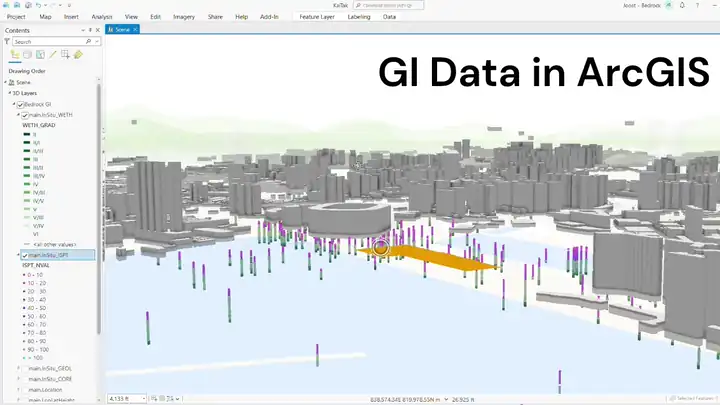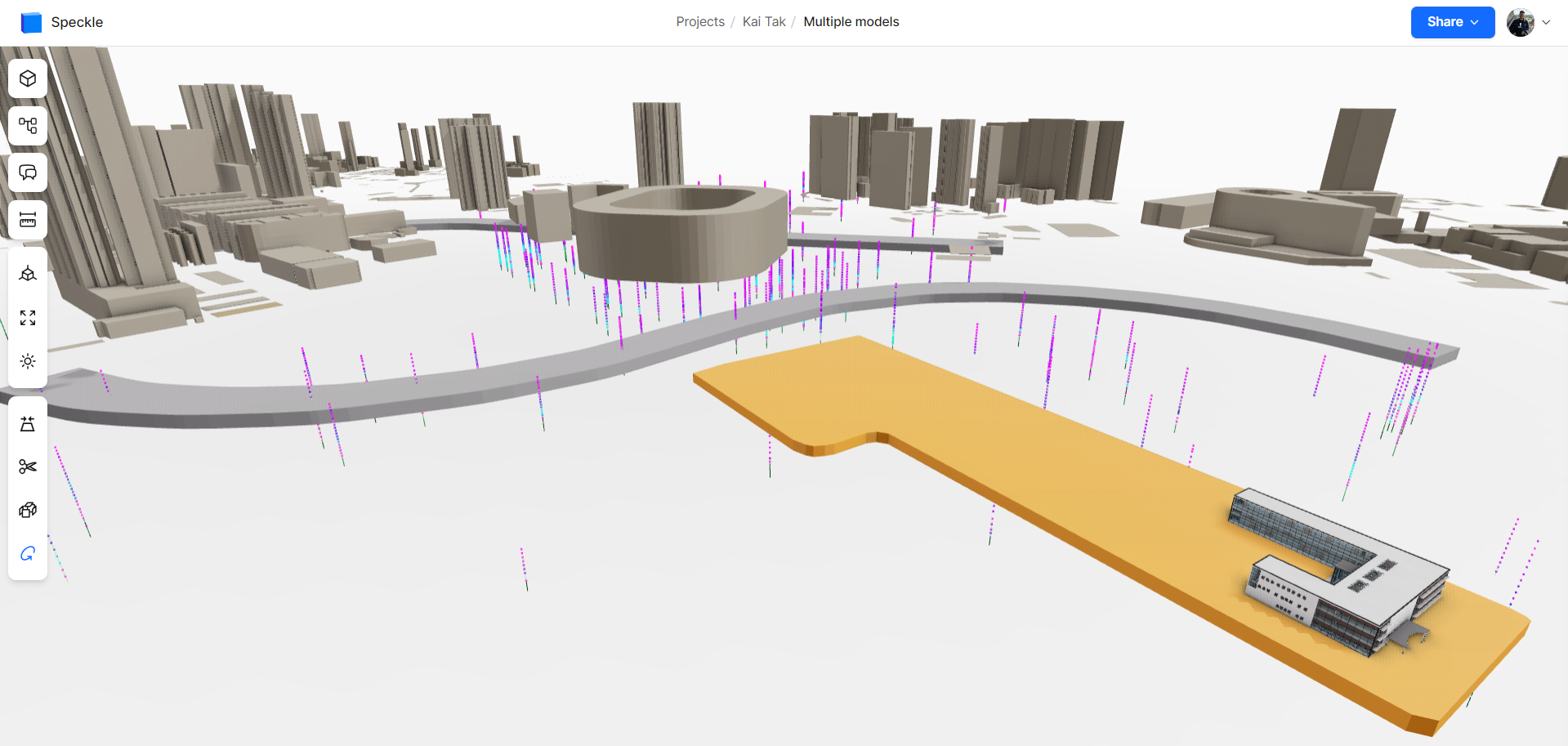Visualize. Integrate. Optimize.
Your Subsurface
Data
Your Subsurface Data
Surface your subsurface data in web maps, Python, QGIS, and AEC platforms, escape proprietary databases like gINT or industry-specific file formats like AGS and GEF.
We have worked with
View and share your Ground Investigation data in the browser
Bridge the gap between specialized GI data formats and the wider world of geospatial tools and standards.
Explore boreholes, test results, and ground models directly in your browser, no specialist software required.
Unlock the geospatial ecosystem for subsurface data
Access ground investigation data in GIS software, Python, and modern geospatial workflows.
Analyze, visualize, and automate using the tools data scientists and GIS professionals already know.

Connect subsurface data with structural and building models
Break down silos with geospatial ground investigation data. View geotechnical and structural models together in design software like Rhino3D or Civil3D. Enable seamless collaboration across disciplines using AEC collaboration platforms like Speckle,

A Software Consultancy for Subsurface Data
Ground investigation data is trapped in proprietary databases (gINT), text formats (AGS, GEF), and specialist software, while geospatial tools thrive in a separate, open and interoperable ecosystem.
Bedrock.engineer bridges this gap. We're a software consultancy specialized in subsurface data. We build tools and workflows that connect your ground investigation data to modern platforms like QGIS, web maps, PostGIS databases, and BIM tools.
What we do:
- Convert legacy formats (AGS, GEF/CPT, gINT) into modern geospatial formats like GeoPackage or geospatial databases like PostGIS
- Build web applications for CPT data management, engineering model visualization (Plaxis, Deltares D-Series), and interactive 3D maps
- Integrate ground investigation data into digital twin platforms for infrastructure planning
- Create automated workflows connecting subsurface data to QGIS, BIM platforms, and design tools
Our Values
Purpose-built for subsurface data
We build tools specifically for subsurface data, applied to your specific workflows. Not generic GIS software that "almost" fits. Reusable patterns for subsurface data that we adapt to your needs. You get tailored tools without custom-build costs.
Interoperable geospatial data
Modern geospatial formats mean your subsurface data works everywhere, QGIS, ArcGIS, Python, web maps, geospatial databases. We bring practices from modern software development and the geospatial ecosystem to subsurface data.
Open ecosystems
We believe deeply in open-source software and open standards to
make subsurface data more accessible and understandable, and drive
innovation in geotechnical engineering. We maintain
bedrock-ge, our open-source Python library for turning ground investigation
data into geospatial data we use in projects.
The Team
Jules Blom

Experienced in building data-rich geospatial applications. Specializes in making complex subsurface data clear through visualization and intuitive user interfaces. Background in Petroleum Engineering (Reservoir Geology) at TU Delft.
Joost Gevaert

Geotechnical engineer and computational designer. Worked at Arup bridging gaps between geotechnical and structural engineering workflows. Background in Geotechnical Engineering and Applied Geophysics.